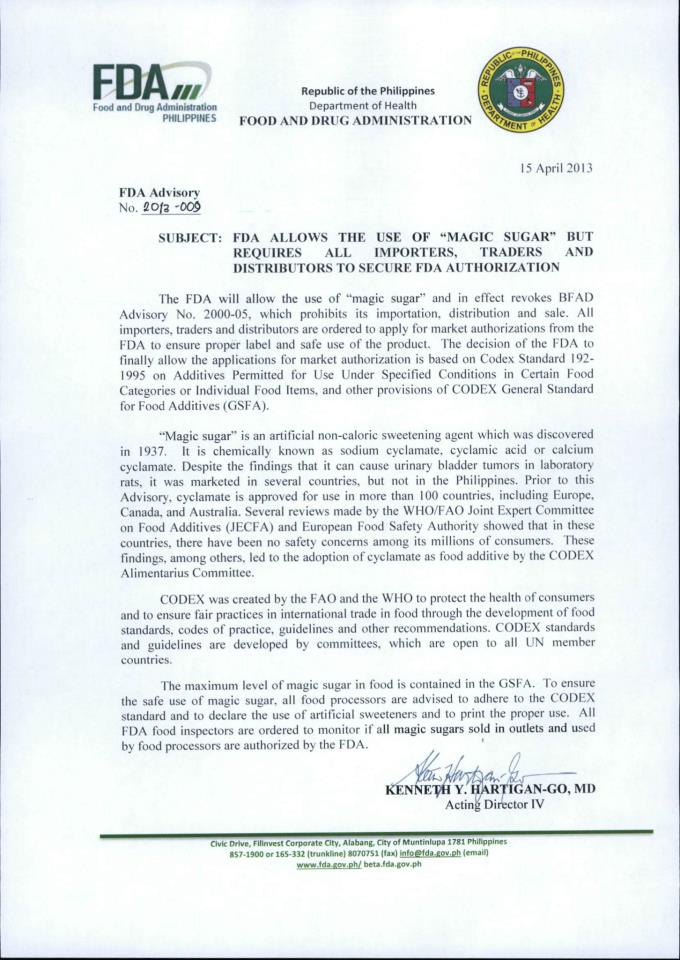The Philippine Food and Drug Administration (FDA) reversed its 13-year ban against the use of ‘magic sugar.’ In a statement released April 15, FDA acting director Kenneth Hartigan-Go pointed out that over a hundred countries including Australia, Canada, and European nations have found “no safety concerns” among ‘magic sugar’ consumers.
Hartigan-Go however ordered all importers, traders, and distributors to apply for market authorization from their agency to “ensure proper label and safe use of the product.” At the same time, he mandated FDA food inspectors to strictly monitor whether the ‘magic sugars’ sold around the country are authorized by their agency.
In the advisory, he noted that ‘magic sugar’ is already listed as a permitted food additive in the UN Food and Agriculture Organization’s Codex Alimentarius (Latin for “Book of Food”). Food processors that intend to use ‘magic sugar’ must abide by the requirements listed in the Codex’ General Standard for Food Additives (access it through this webpage) as regards the acceptable levels of its consumption, the acting FDA chief also stressed.

The then-Bureau of Food and Drugs (BFAD) issued an advisory back in August 2000 prohibiting the sale and use of ‘magic sugar.’ In his advisory, then-BFAD director William Torres warned that violators may face imprisonment of up to five years as stipulated in Republic Act 3720 or the Food, Drug, and Cosmetic Act of 1963. As recently as last month, the Department of Health reminded the public against peddlers of juice drinks who may be using ‘magic sugar.’
Known through its chemical names sodium cyclamate and cyclamic acid, ‘magic sugar’ is an artificial sweetener first discovered in 1937 by Michael Sveda, a researcher from University of Illinois. In 1969, a series of experiments suggested that the substance causes bladder cancer among laboratory rats. Similar studies done in the years after did not back this conclusion, however.







Perhaps its me being paranoid, but I still AM NOT going to use magic sugar in my coffee
We need time to think about this. I understand your concern.
What do you think will happened to those found violating the prohibition before now that it lifted the ban on magic sugar?